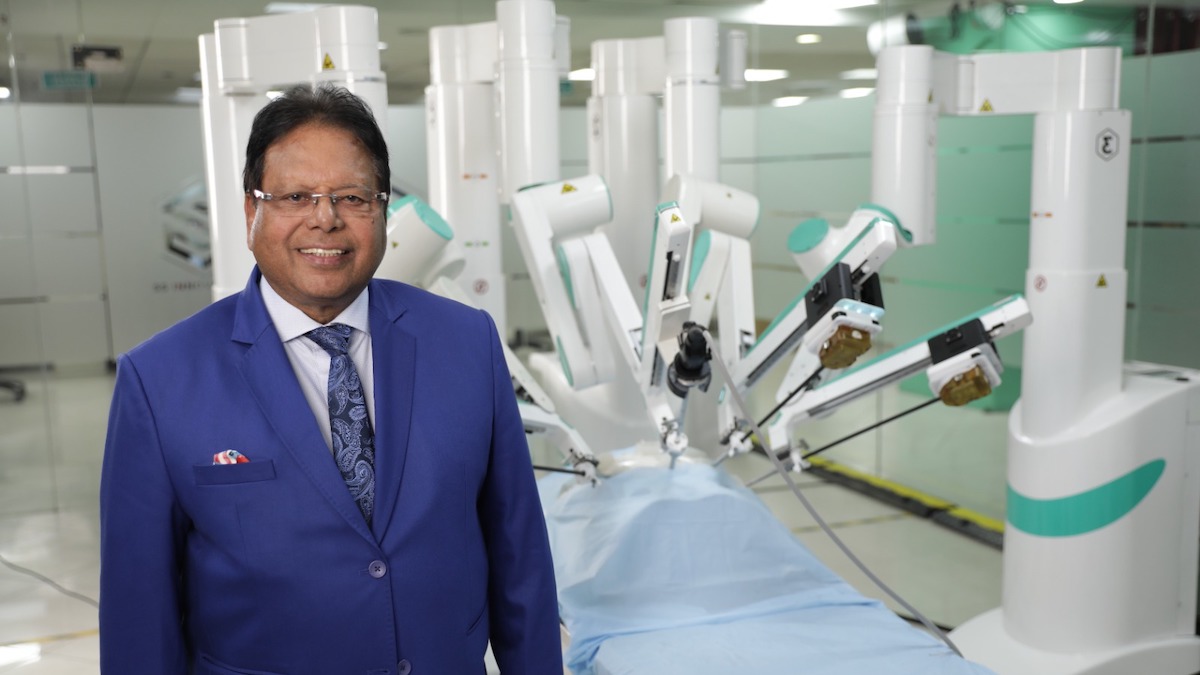 New Delhi: Red flagging people with chronic constipation, Dr Ravi Gaur, COO, Oncquest Laboratories has said it could be early symptom of Colorectal Cancer.
New Delhi: Red flagging people with chronic constipation, Dr Ravi Gaur, COO, Oncquest Laboratories has said it could be early symptom of Colorectal Cancer.
A recent survey conducted by Abbott, the global healthcare and research firm, found 22 per cent of the adult population in India suffering from constipation, with 13 per cent of people suffering from severe constipation.
In this article, Dr Gaur has gone at length to talk about the risks of Colorectal Cancer, telling how to shield against it.
In India, people still avoid talking openly about their digestive health problems with their family, friends, and even medical practitioners, despite the modern culture gaining massive popularity. With increasing income and consumer spending power, people have been shifting to the modern lifestyle or dietary habits that have deleterious effects on an individual’s health, especially on the digestive system. The incidence rate of gastrointestinal disorders such as constipation, colitis, irritable bowel syndrome, hematochezia, and colon polyps arerising steeply with the rapid urbanisation of India. While benign constipation is uncomfortable and harmless, it does point towards serious health concerns such as digestive cancers. Chronic constipation is one of the early symptoms of colorectal cancer, a formidable digestive cancer with 1.80 million new cases globally in 2018, as estimated by the World Health Organisation (WHO).
Understanding colorectal cancer in brief
In the medical terms, adenomatous polyps (adenomas), when they grow abnormally fast in the inner lining of the colon or large intestine develops into cancerous tumours. This might take place only in the colon (a condition called colon cancer) or in the rectum (rectal cancer) or in both (colorectal cancer). During the initial stage, one might not able to experience any grave symptoms, other than mild constipation or occasionally abdominal pain. But, rectal stools, severe diarrhoea, constipation, gradual weight loss, chronic constipation, irritable bowel syndrome (IBS), and anaemia are the common symptoms of developing colorectal cancer and require immediate medical attention and treatment. Any delay in medical counselling can worsen the condition and decrease the chances of complete cancer cure.
Colorectal cancer: Curable or not?
As per the data and statistics available to date, the incidence and prevalence rate of colorectal cancer in India is lower than in any of the other developing nations. Concerning the demographics, over 90% of people diagnosed with colorectal cancer are aged 50 or above. However, the youths do have equal risks of developing colorectal cancer. Also, men are seen as more prone to cancer than women.
Unlike other digestive cancers such as gastric or pancreatic, colorectal cancer has shown higher prospects of restoring healthy life and stomach, if the condition is diagnosed at the earlier stage. Moreover, India has improved medication and treatment facilities for minimizing the rate of mortality due to improved colorectal cancer care, provided cancer gets timely diagnosed. With best-in-class diagnosis and detection tools and effective course of medication and treatment, the colorectal condition can be cured.
Stage IV colon cancer or aggravated rectal cancer can grow out of control and spread to other body organs, starting with liver first. It has now become a universally acknowledged fact that the earlier diagnosis of cancer lengthens the survival period of the patient. Yet, only 39.0% of the patients are diagnosed at the local or stage 1 of colorectal cancer.
Preventive measures against colorectal cancer
Many think that effectual treatment is the key to fight against colorectal cancer, but earlier detection and screening is the most important thing. In a majority of the cases, colorectal cancer is diagnosed at an advanced stage where there is no option available other than surgery. It isgood news that colorectal polyps can easily be detected at an earlier stage through colorectal screening, which makes it easier for the doctors to remove or treat them using ablation or radiation therapy preventing them from turning into malignant tumours. One’s speedy recovery from these life-threatening conditions is dependent on the stage cancer is detected and the strength of a patient’s immune system. The treatment is successful when cancer hasn’t blocked the colon entirely or body is strong enough to bear laparoscopic surgery, colostomy, or cryoablation.
However, colorectal cancer can even return and reoccur, if the preventive measures are not taken properly. Even after surgery, the body is still vulnerable to developing malignant tumours again which have to be treated at the right time. A complete cure of the cancer is not possible without detection at the most opportune time. Therefore, the point is that people should be fully aware of colorectal cancer, its causes, diagnosis, prognosis, and treatment. Shying away to not to talk about digestive health and concerns direct and open can lead to drastic consequences. Though cancer crusaders are taking initiative to spread the awareness about various types of cancers found in men and women, every individual should step forward to visit a doctor and undergo cancer screening and detection as soon as they notice any abnormal functions in the body. There is a need of widespread awareness and education on coloproctology, especially detection methods such as colonoscopy, imaging scans, barium enema X-ray, and flexible sigmoidoscopy so that people are not afraid of paying visits to their doctors or oncologists.








